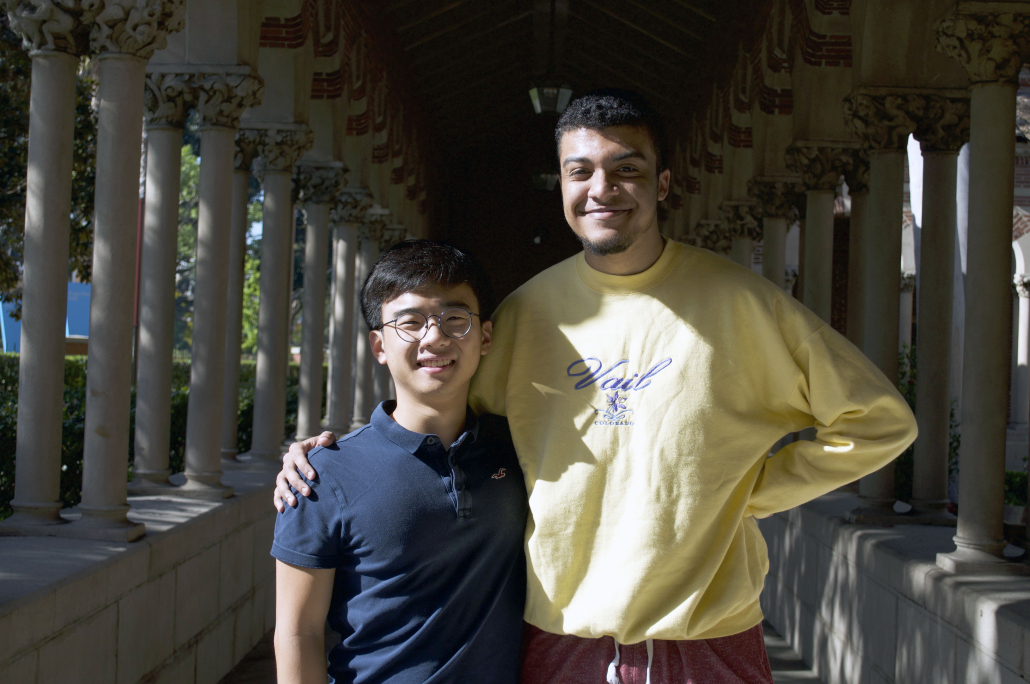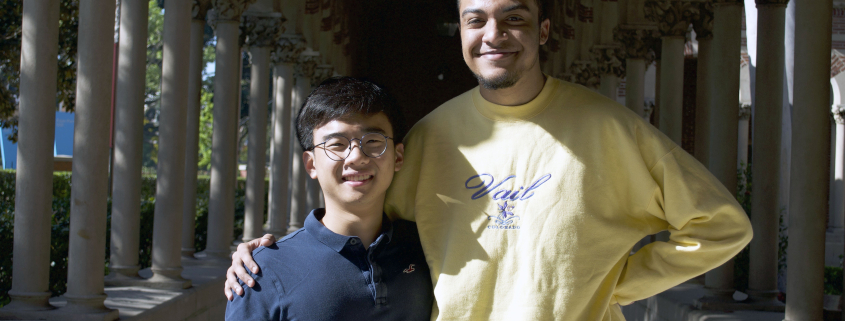Debate team rounds off successful season

Following their biggest recorded win in the last 30 years at the Texas Open, the Trojan Debate Squad went on to the National Debate Tournament, held April 8 to 10, where they made it to the semifinals — the farthest USC has gone in 40 years.
Partners Julian Kuffour and Kevin Sun were seeded sixth at the Texas Open, a national debate tournament hosted by the University of Texas at Austin, and beat out the number one seeded team — the University of Michigan. The team’s “white whale” at the National Debate Tournament was Northwestern University, the number two ranked team in the country, who they had yet to win a debate against, but defeated at the tournament.
“Being that late in the [Texas Open], and then when we won the tournament, it’s just all the emotion that you’ve really put into debate for, like, eight years comes out,” said Kuffour, a senior majoring in law, history and culture.
The duo invested a great deal of time into collegiate debating and to win a tournament in its final season together was an accomplishment for both of them.
“When people win tournaments, they’re just extremely regal,” Kuffour said. “Me and Kevin jumped out of our seats, screaming and cursing.”
Sean Kennedy, director of debate and forensics, said he saw the team grow significantly over their years together.
“By the time they finished their last debate at the National Debate Tournament, it was just amazing to see they thought they could go into any debate against anybody and win,” Kennedy said. “That, to me, was the biggest improvement — that they just started to realize how talented they were, and to believe in themselves.”
Sun, a junior majoring in computational linguistics and computer science, and Kuffour have been debate partners since Sun was a freshman.
“When I first came, we were doing these little meetings, and we did a couple practices together, and I thought it would be really cool to do it with Julian,” Sun said. “The rest is history.”
Each year, the debate’s topic is decided in July. The team spent the next seven months researching this year’s topic, antitrust policy, and debating it against teams across the country.
“At every tournament, people introduce new arguments and angles, and we have to evolve literature to answer those new approaches,” Sun said.
Sun and Kuffour find ways to practice nearly everyday. They spend time conducting independent research before texting and calling about their arguments or findings to strengthen their skills, Kuffour said.
“We try to inject a little bit of fun into them, never taking ourselves too seriously, but also, [Kuffour] keeps me on my feet all the time,” Sun said.
The Texas Open was one of their biggest competitions of the season. Going into the tournament, the team “knew they were good.” Getting to the final round required the team to debate in 11 rounds prior. With each round taking nearly two hours, the team debated for 22 hours that weekend.
The Trojan Debate Squad has not won a tournament since at least the 1990s, though some records show that the latest win dates back to the 1970s. In either case, the Texas Open victory and success at the National Debate Tournament were “long-awaited,” Sun said.
Sun credits the organization of the team, the finding of his partner and the success of their arguments to Kennedy and his support.
Kennedy, who joined the team in 2020, said he was drawn to USC’s strong debate traditions. Kennedy helps manage everything from practice to travel and works closely with Jazmine Pickens, an assistant coach who worked extensively with Sun and Kuffour and always went “above and beyond,” Kennedy said.
Moving forward, Kennedy said he hopes Sun and Kuffour’s success inspires the team’s underclassmen.
“We have a lot of younger debaters who are super talented on our team, but … they often do not have confidence in themselves, and they do not appreciate their own talent,” Kennedy said. “What I’m hoping that this can do is show our younger debaters: ‘You can do this too.’”

